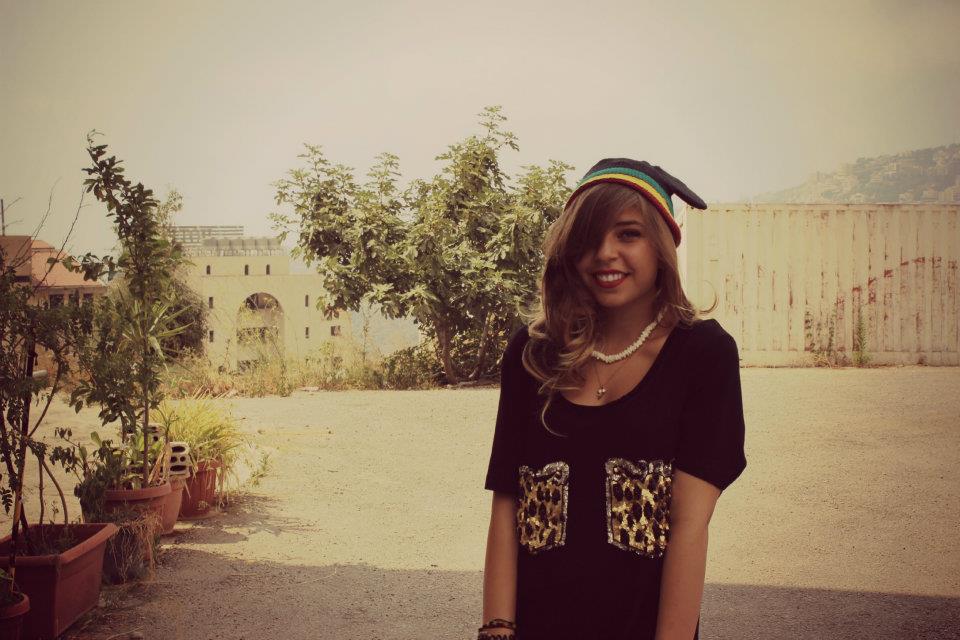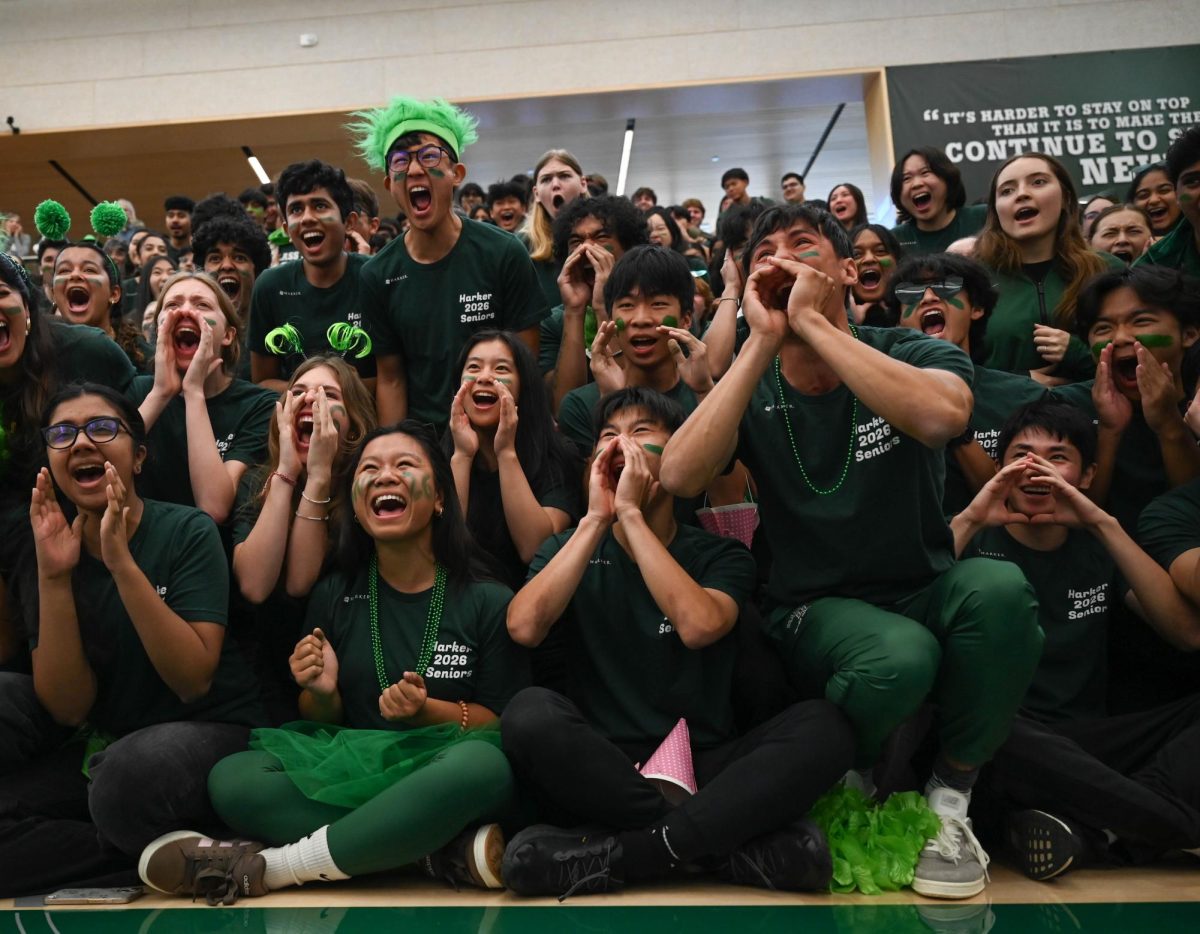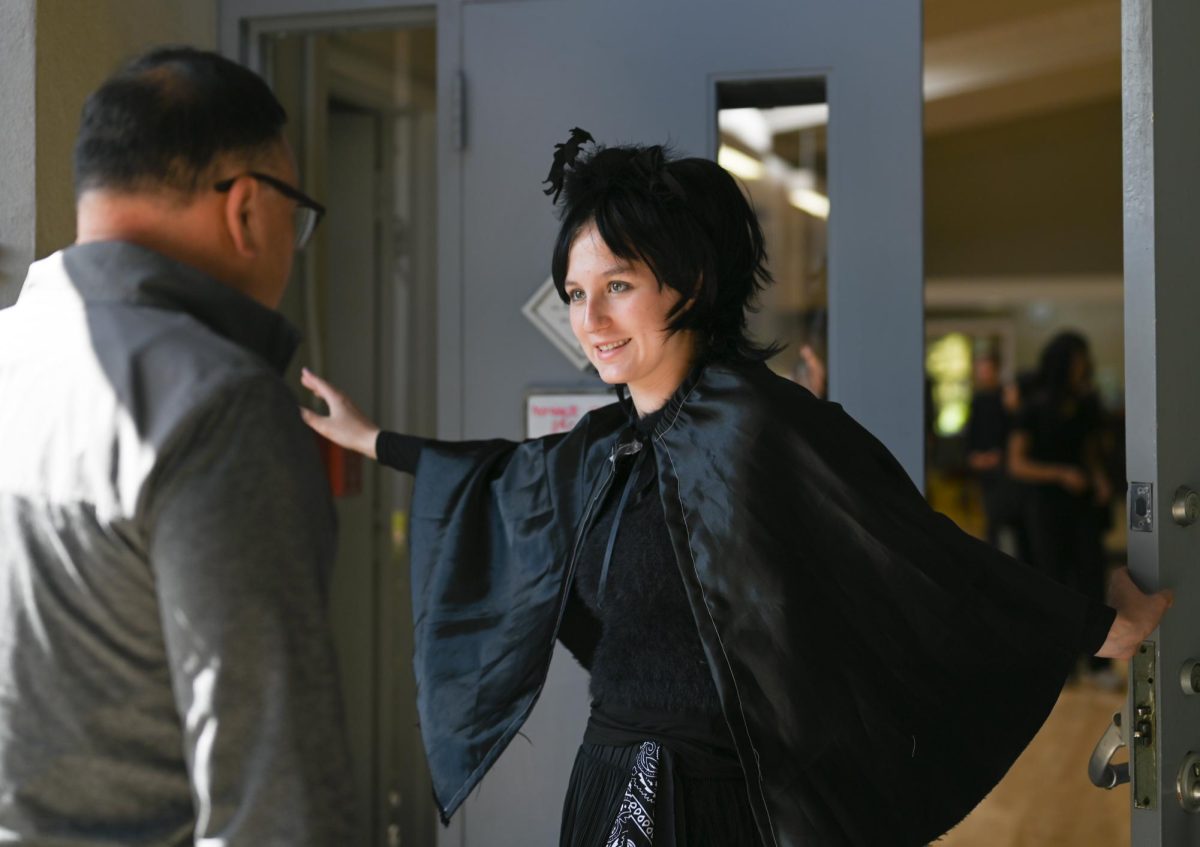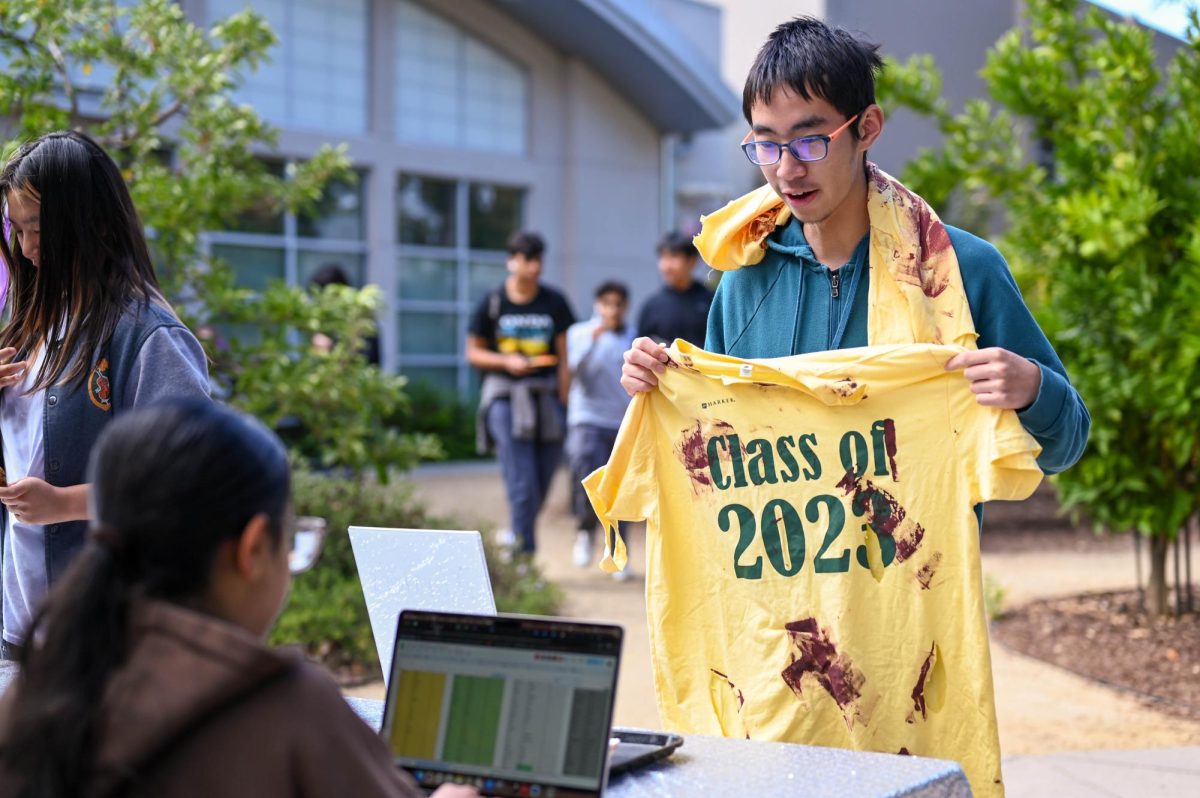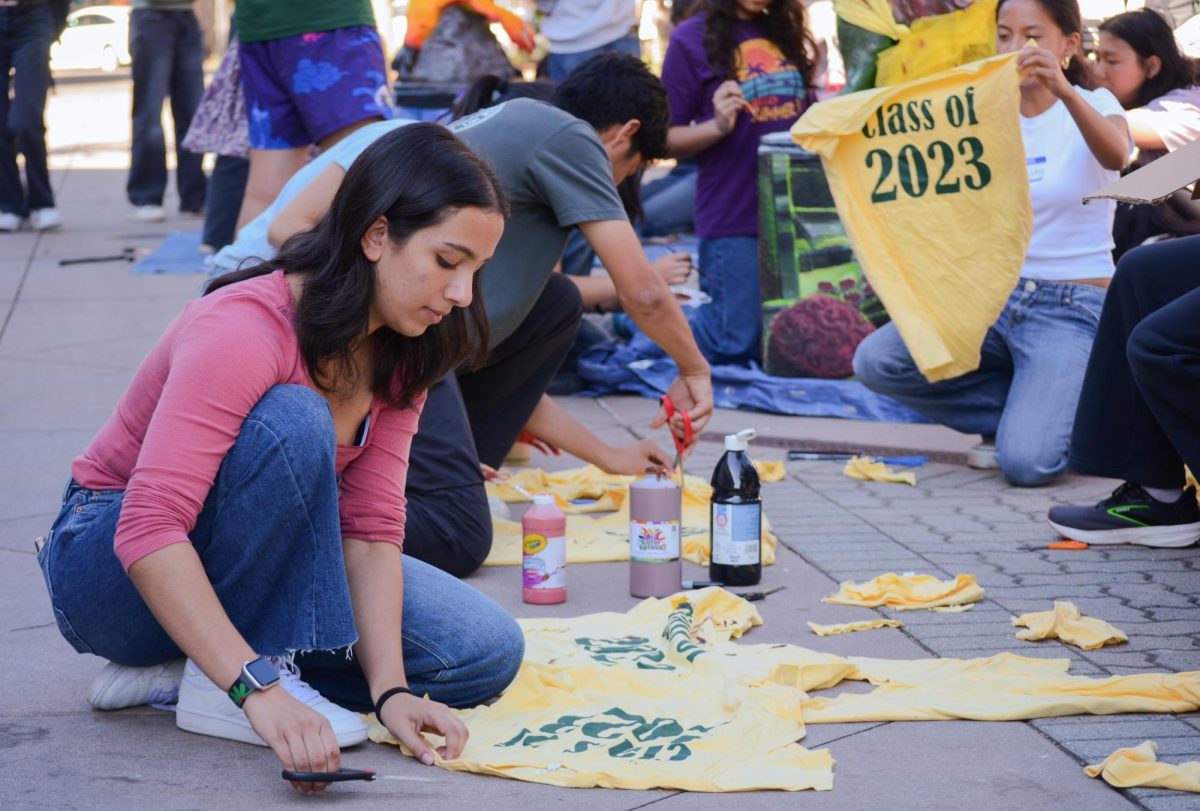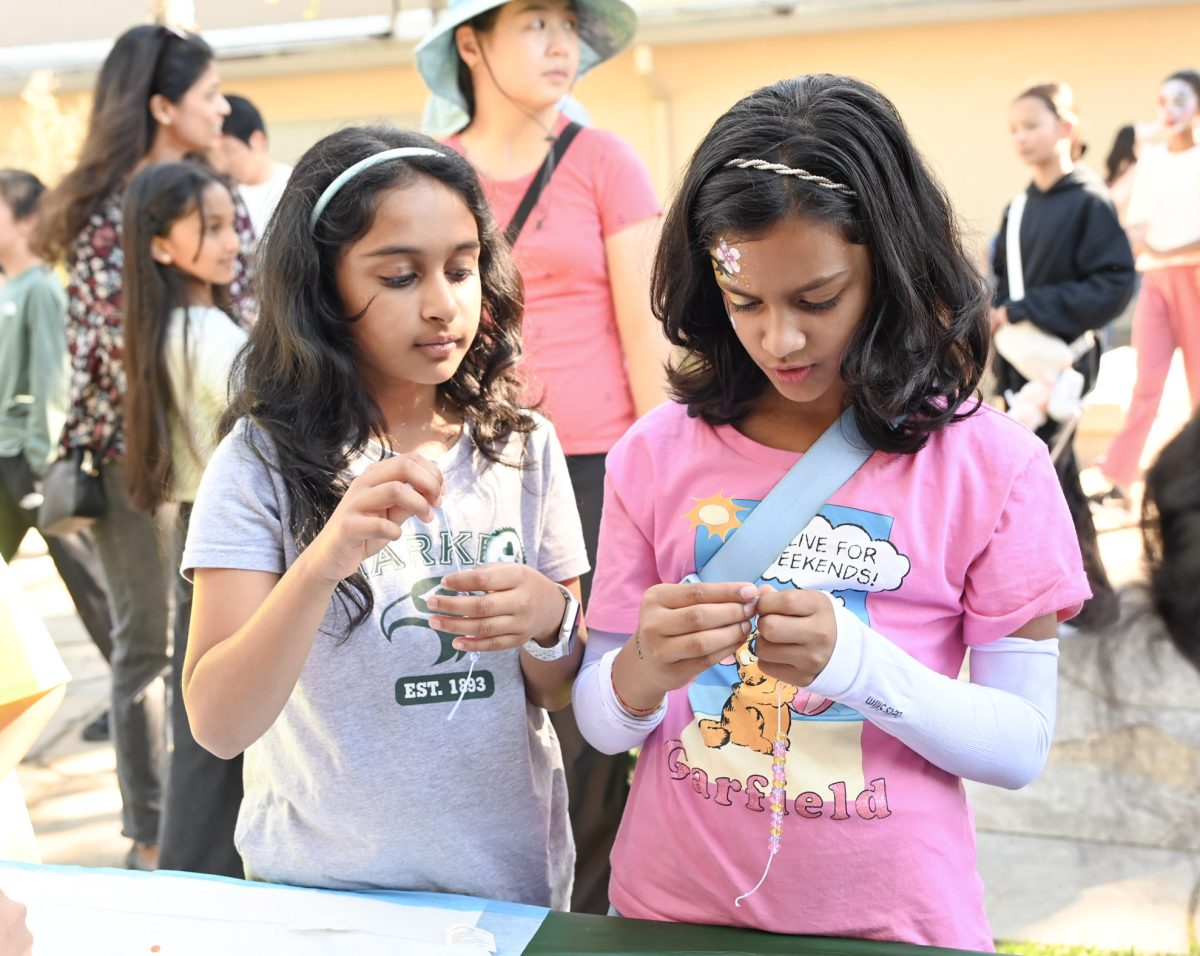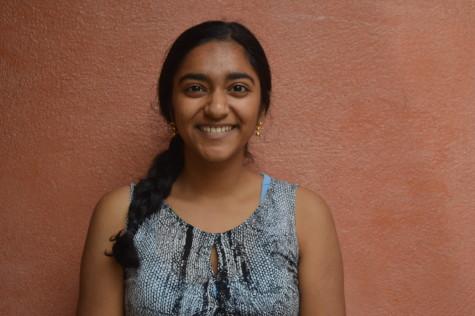When Julia Eliovich calls her Syrian relatives from Lebanon, the questions that she asks are far from normal.
“Has anyone passed away? Are you guys safe? Can you guys leave the house? Where have you been going? Did anything land on your roof?”
Syrian by descent, American by passport, and Lebanese by location, she is caught in the crossfire of the Syrian civil war, a conflict that has shaken both her family and the entire Middle East.
After attending the Harker School for two years, Julia moved back to Lebanon this summer to be with her family.
According to Michel Suleiman, Lebanon’s president, the country has taken in one million refugees since the beginning of the war, ballooning its population to 4.5 million. Of that estimate, the United Nations Refugee Agency (UNHCR) has registered over 659,000 Syrian refugees in Lebanon as of Sept. 24. But Lebanon has been unevenly affected by the war, according to Julia.
“It’s like there’s a stick in between,” she said. “I live kind of far from Beirut, and over here people can be partying, having a good time. And in Beirut, people would be dying from explosions.”
South Lebanon, where Julia lives, is home to over 90,000 refugees, some of whom attend her school. Thus, problems in Syria often have repercussions in her education.
“You never know when you’re going to get a letter from a school that says that it’s going to be closed for two weeks,” she said.
Julia’s father owned a hotel in Syria, which shut down “because the riots got too violent.” But her family still provides a roof over the heads for family and friends who have fled the country.
“We try to help the people we know,” Julia said of her involvement in relief efforts. “Our family has extra rooms, so whenever the scenario in Syria gets really bad we keep them in our homes for a week. We donate. But Lebanon’s an expensive country.”
The refugee influx has had practical consequences for both Lebanon and the refugees themselves. Only 10% of the school-aged refugee population attends school regularly, says the UNHCR. According to the United Nations Entity for Gender Equality, limited job opportunities have caused one-third of refugees to turn to early marriage for financial stability. But according to Julia, even life in Lebanon is far more predictable than life in Syria.
“It’s often that on one day [in Syria], everything’s going normal and then the next day is complete chaos,” she said. “Sometimes they go up to the roof and they see bullets.”
Her Syrian family has seen the disruptive nature of the war firsthand.
“My cousin, he’s young, he’s about six. He’s been traumatized. He can’t think, he can’t study, he can’t go outside,” Julia said. “Every time he hears an airplane, he has to hide under a table because he’s so worried there may be a bomb.”
She has, however, seen a uniformly dramatic increase in crime.
“With the war situation, there are a lot of criminals here from Syria,” Julia said. “They’ve been stealing girls, raping, killing.”
Julia sees the violence as senseless.
“How valuable is it to anyone if someone is killed? And people are dying every day, like they’re nothing, like they’re flies. People die and nobody cares. And that’s not what anybody wants,” she said.
The turmoil in the Middle East lies in sharp contrast to her “second home,” America.
“Be thankful for what you have, be happy, enjoy the stability that you’re living in,” she said. “When I was in America, I didn’t have to worry about being exploded, or my car being stolen and me getting kidnapped.”
Though some American diplomats have proposed foreign intervention to stabilize Syria, Julia is wary of its effects.
“If Syria gets hit by America, we’re going to have problems too,” she said. “The whole Middle East is going to be affected. We don’t want that. And they just don’t think about that.”
According to Julia, the media has misrepresented much of the violence in the country, attributing it to al-Assad instead of the rebels. She credits a “good-guy rebel” stereotype for the misinformation.
“If you know someone that’s Syrian or someone who’s an Arab, your best bet is to go talk to them and ask them what’s going on,” she said. “Because, honestly, only the Syrian people know what’s going on in their country.”
Julia hopes for a peaceful resolution in Syria’s future.
“I would tell them to stay strong,” she said. “And, you know, watch out for themselves, take care of their families, and hopefully this pain will be over soon.”


















![“[Building nerf blasters] became this outlet of creativity for me that hasn't been matched by anything else. The process [of] making a build complete to your desire is such a painstakingly difficult process, but I've had to learn from [the skills needed from] soldering to proper painting. There's so many different options for everything, if you think about it, it exists. The best part is [that] if it doesn't exist, you can build it yourself," Ishaan Parate said.](https://harkeraquila.com/wp-content/uploads/2022/08/DSC_8149-900x604.jpg)




![“When I came into high school, I was ready to be a follower. But DECA was a game changer for me. It helped me overcome my fear of public speaking, and it's played such a major role in who I've become today. To be able to successfully lead a chapter of 150 students, an officer team and be one of the upperclassmen I once really admired is something I'm [really] proud of,” Anvitha Tummala ('21) said.](https://harkeraquila.com/wp-content/uploads/2021/07/Screen-Shot-2021-07-25-at-9.50.05-AM-900x594.png)







![“I think getting up in the morning and having a sense of purpose [is exciting]. I think without a certain amount of drive, life is kind of obsolete and mundane, and I think having that every single day is what makes each day unique and kind of makes life exciting,” Neymika Jain (12) said.](https://harkeraquila.com/wp-content/uploads/2017/06/Screen-Shot-2017-06-03-at-4.54.16-PM.png)








![“My slogan is ‘slow feet, don’t eat, and I’m hungry.’ You need to run fast to get where you are–you aren't going to get those championships if you aren't fast,” Angel Cervantes (12) said. “I want to do well in school on my tests and in track and win championships for my team. I live by that, [and] I can do that anywhere: in the classroom or on the field.”](https://harkeraquila.com/wp-content/uploads/2018/06/DSC5146-900x601.jpg)
![“[Volleyball has] taught me how to fall correctly, and another thing it taught is that you don’t have to be the best at something to be good at it. If you just hit the ball in a smart way, then it still scores points and you’re good at it. You could be a background player and still make a much bigger impact on the team than you would think,” Anya Gert (’20) said.](https://harkeraquila.com/wp-content/uploads/2020/06/AnnaGert_JinTuan_HoHPhotoEdited-600x900.jpeg)

![“I'm not nearly there yet, but [my confidence has] definitely been getting better since I was pretty shy and timid coming into Harker my freshman year. I know that there's a lot of people that are really confident in what they do, and I really admire them. Everyone's so driven and that has really pushed me to kind of try to find my own place in high school and be more confident,” Alyssa Huang (’20) said.](https://harkeraquila.com/wp-content/uploads/2020/06/AlyssaHuang_EmilyChen_HoHPhoto-900x749.jpeg)



